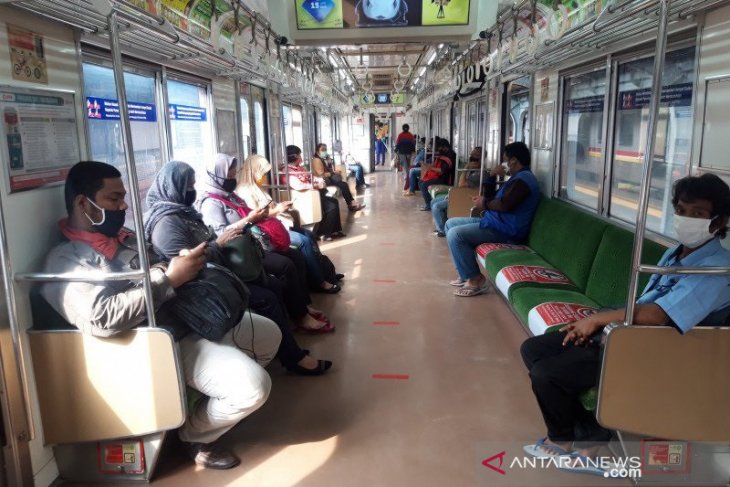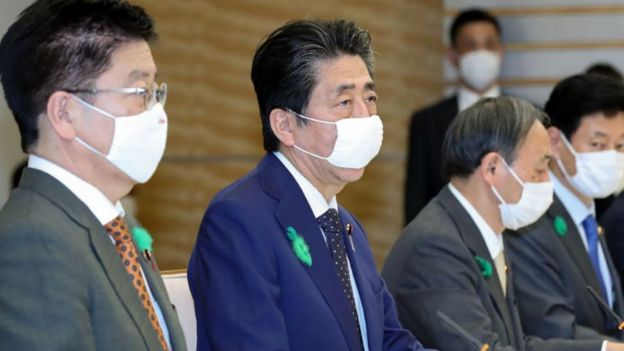Live Streaming
Program Highlight
Company Profile

Ani Hasanah
Indonesia Needs Spirit of 'Gotong Royong' in COVID-19 Fight: President
President Joko Widodo on Saturday highlighted the importance of fostering the spirit of "gotong royong”, or mutual cooperation, to fight the spread of the new coronavirus disease (COVID-19).
"The government cannot work alone. The entire nation's participation is indispensable," President Jokowi said in a video statement from the Bogor Presidential Palace as quoted by Antara.
He said the current situation has obviously left people ill at ease. But, with the spirit of "goyong royong", Indonesia would be able to come out of the current crisis, he added.
The President said he felt Indonesia would emerge as an even more powerful nation that would be better prepared for charting a brighter future.
He urged citizens to show the spirit of mutual cooperation across the country by helping one another.
"The caring and sharing movement must be made public. This is not aimed at showing off, but at keeping hope alive, and inspiring others to do the same good deeds," he noted.
President Jokowi also reiterated his call for working and studying from home, as well as performing religious obligations at home.(Antara)
April

Passengers ride a commuter line in Jakarta. (ANTARA)
Indonesian Health Minister Terawan Agus Putranto has approved the implementation of large-scale social restrictions (PSBB) in Makassar, South Sulawesi Province, as part of efforts to step up response to the novel coronavirus disease.
“The Makassar Mayor had earlier proposed the imposition of PSBB in the city, and based on the evaluation of our technical team, PSBB can be implemented there," Terawan noted in a statement issued here on Thursday.
The minister signed Ministerial Decree No. HK.01.07/Menkes/257/2020 on the imposition of PSBB in Makassar on April 16, 2020.
Before large-scale restrictions are approved for any city, a team from the Health Ministry conducts an epidemiology study and evaluates the city's preparedness in terms of the social, economic, and other aspects.
After a study was carried out in Makassar, the ministry concluded that the city be allowed to impose PSBB on account of a considerable spike in the number of COVID-19 cases.
The restrictions need to be followed up by consistent efforts from the city administration to promote a clean and healthy lifestyle among residents.
So far, the Health Minister has approved the imposition of PSBB in Jakarta; Bekasi District/Municipality, Depok City, and Bogor District/Municipality in West Java; Tangerang District/Municipality and South Tangerang City in Banten; and, Pekanbaru in Riau.
PSBB can be imposed in a region at the approval of the Health Minister. It is effective for a period of 14 days and can be extended if the authorities still find cases of virus transmissions in the region.
Following the issuance of a ministerial decree, a governor’s regulation needs to be issued to serve as a form of technical guidance on the implementation of PSBB.
The Health Minister has rejected proposals for according PSBB status to some regions, including Bolaang Mongondow District in North Sulawesi, Fakfak District and Sorong City in Papua, Palangka Raya in Central Kalimantan, and Rote Ndao District in East Nusa Tenggara.
The regions have not been able to impose restrictions as they are yet to meet the criteria set for PSBB. (ANTARA)
April

Prime Minister Shinzo Abe, centre, declared the state of emergency at a special meeting of medical experts (BBC)
The move allows regional governments to urge people to stay inside, but without punitive measures or legal force.
The state of emergency will remain in force until 6 May.
Prime Minister Shinzo Abe had previously declared a month-long state of emergency in seven regions.
Speaking at a special meeting of medical experts, Mr. Abe said: “Areas, where a state of emergency should be carried out, will be expanded from the seven prefectures to all prefectures.”
As the number of infections in Japan has increased, criticism of Mr. Abe’s response has grown louder.
One poll shows 75% of people think the prime minister took too long to declare a state of emergency in Tokyo.
After a recent spike in cases in the capital Tokyo, experts warned that the city’s emergency medical facilities could collapse under the pressure. Officials in Tokyo have also urged people to work from home.
After the initial state of emergency came into force on 8 April, a number of other regional governors called for the measures to be extended to their areas, saying that cases were growing and their medical facilities were overwhelmed.
Japan’s two emergency medical associations also issued a joint statement warning that they were “already sensing the collapse of the emergency medical system”.
And the mayor of Osaka appealed for people to donate their raincoats, so they could be used as personal protective equipment (PPE) for health workers whom he said were being forced to fashion PPE out of rubbish bags. (BBC)



